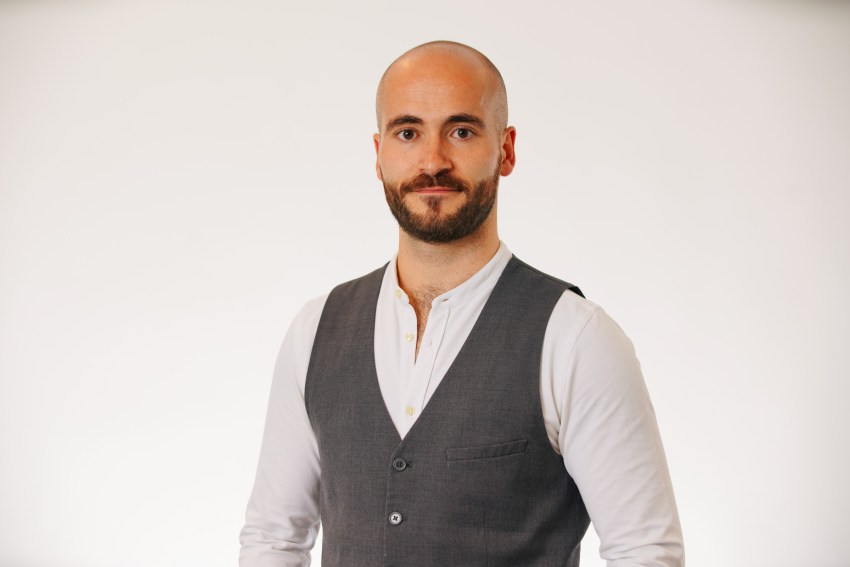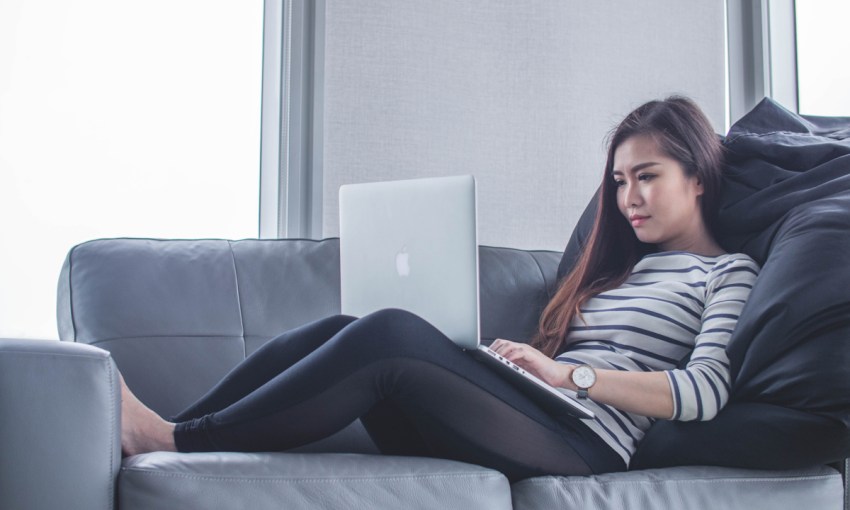The South Australian Health and Medical Research Institute's Wellbeing and Resilience Centre has reduced its online mental health support program from $320 to a pay-what-you-feel model.
Pay as little as $1 for SAHMRI’s online mental health program
SPECIAL REPORT: COVID-19 ADELAIDE
The South Australian Health and Medical Research Institute’s Wellbeing and Resilience Centre (WRC) originally designed its Be Well Plan as a way for individuals to manage the ups-and-downs of general life.
Find more information and sign up for the Be Well Plan at the website.
With the advent of the COVID-19 crisis bringing one almighty down to a huge swathe of people across the world, the team behind the project has decided to launch the initiative early and make it available to the public on a pay-what-you-feel model.
“There’s so much uncertainty out there, and normally, the effects of being in quarantine or being isolated or locked up on the human psyche are pretty profound,” says Joep van Agteren, lead researcher at WRC.
“Right now, even though we still have the freedom to move, I think the fact that we can’t do what we want coupled with a lot of anxiety, and the fact that millions of people have just lost their jobs, and other people are most probably wondering what would happen to their own stability, it doesn’t make for a very good mental health cocktail.”
The Be Well Plan, which was created in collaboration between SAHMRI and Flinders University’s Órama Institute, consists of five online sessions (spanning 10 hours) and aims to give users tailored solutions to strengthen their mental health.
The plan asks individuals to think about who they are and then provides appropriate, evidence-based mental health strategies in line with their values, resources and challenges, and with the aim to support their individual goals.
The program was originally priced at $320, but Joep says SAHMRI and Flinders wanted to demonstrate their support for the South Australian community during these challenging times by introducing a pay-what-you-like model, making the course available for as little as $1.
“If you look at pretty much any other major disaster or time of upheaval, you always see that in the months after or in the years after, the psychological health problems just started stacking up,” he says.
“I’m quite happy that at least mental health was acknowledged by the government in yesterday’s package but I hope that – it’s still a bit a little bit vague on details – some of it also goes to people that aren’t necessarily diagnosed with a mental illness, but people that are currently just struggling and showing subclinical symptoms.
“There’s a heap of society out there. I just hope that we’re not forgetting about them, and that’s kind of what we are gearing this program towards.
“We need to develop some positive strategies to help us all ride this through, because all signs are pointing to the fact that this is not going to be a short ride.”

Above: Joep Van Agteren goes for a 40-minute run every morning and does a 10-minute meditation before bed to keep his mental health robust. Picture: Supplied
On Monday, Prime Minister Scott Morrison acknowledged the health and economic challenges the coronavirus poses to all Australians and announced a $1.1 billion Federal Government injection to supporting mental health, domestic violence, community support and telehealth services.
The PM said he was “very aware” many Australians were understandably “anxious, stressed and fearful about the impacts of coronavirus and what it brings.”
Joep says it’s difficult to measure whether mental illness has increased because of COVID-19, but the ABC has reported calls to mental health support services like Lifeline have jumped 20 percent, as individuals grapple with the prospect of joblessness or eviction.
Beyond Blue is also in the process of building a new COVID-19 Mental Health Support Service, funded by the Australian government, which it says aims to meet the “growing demand” for mental health support during the time of crisis.
The South Australian state government also announced yesterday the launch of a free welfare check service aiming to support vulnerable South Australians – those who are older, living with a disability or experiencing mental illness or sickness – over the phone.
The service will work in tandem with Red Cross staff and volunteers, who will call those signed up to the program and ask about their general welfare and whether they need supplies. Those interested can register for the service online.
To bolster mental health services even further, Premier Steven Marshall and Minister for Health and Wellbeing Stephen Wade said there would be another mental health support line, staffed by Lifeline employees and dedicated counsellors, for those who have contracted COVID-19 or are anxious about it.
The service is the first instalment of the South Australian Virtual Support Network, which aims to connect people in the community who have “mental health first aid” and suicide prevention training. The support line is staffed from 8am to 8pm and can be reached at 1800 632 753.
University of South Australia academic Professor Nicholas Procter says as the world faces the worst pandemic in 100 years, it’s normal to feel intense anxiety or panic, however we should be on the lookout for those whose mental health is being affected worse than others.
“People we work with, family and friends, may all have moments of real vulnerability as the months of living with COVID-19 roll on,” Procter says.
“Stress is a funny beast… It can trigger all kinds of emotions from fear and helplessness, to anger, guilt and shame, and moods can swing from edgy and cross to detached and numb – so we need to be self-aware and prepared to find these responses in ourselves and in others.
“Take breaks from social media and talk to friends and family, read a novel, do something for your mental health and wellbeing – do some gardening. And if you are in a situation where you have had to self-isolate, keep active communications up with friends and people you trust by phone, Facetime, Skype or email.”
The Be Well Plan is now live. See more information on the program at the website. The program’s organisers also encourage individuals to pre-register for facilitated sessions scheduled for early April.




